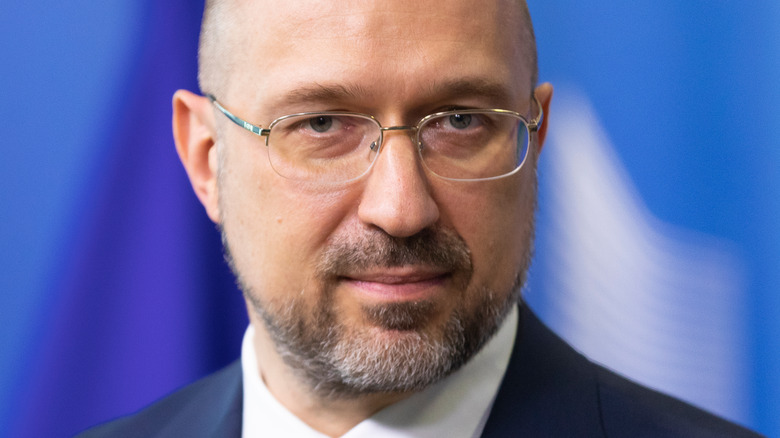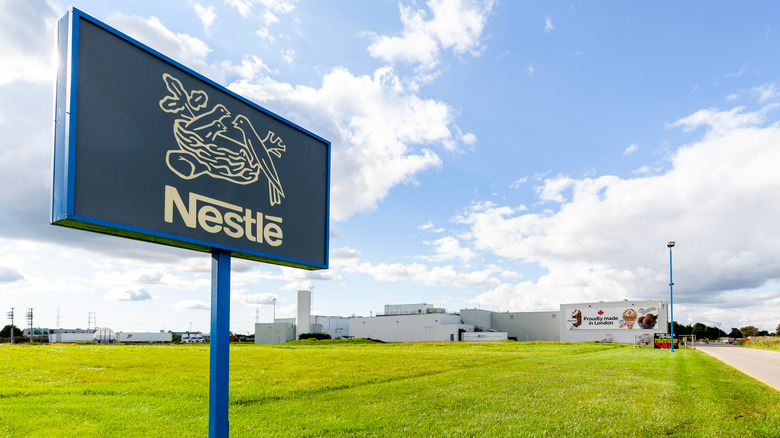Ukraine's Prime Minister Called Out Nestlé Over Its Business In Russia
Nestlé is under fire from Ukrainian Prime Minister Denys Shmyhal following the invasion of the country. Though many U.S. companies have already suspended their business with Russia, Nestlé has not. On March 11th, the world's largest food company announced that it had halted all its advertising activities in Russia and suspended all capital investment in the country (via Nestlé). The company also said it had suspended many exports from Russia and imports into Russia with some exceptions.
Nestlé continues to export "essential foods," including baby food, and imports similar items such as baby food, cereals, and therapeutic pet foods. The company remains open to changes and stated that they "also have a responsibility toward our more than 7,000 employees in Russia — most of whom are locals." Bloomberg noted that Nestlé profited roughly $1.8 billion from Russia in 2021. It may seem like a significant profit, but it made up just 2% of Nestlé's total revenue last year.
This is what the Ukrainian Prime Minister shared
Given the massive profit that Nestlé makes each year compared to the minimal contributions it makes from Russia, many believe that the company should follow the example of other companies and suspend all business with Russia to increase economic pressure on the invading country. That includes Ukrainian Prime Minister Denys Shmyhal, who took to Twitter. "Talked to @Nestle CEO Mr. Mark Schneider about the side effect of staying in Russian market. Unfortunately, he shows no understanding. Paying taxes to the budget of a terrorist country means killing defenseless children&mothers. Hope that Nestle will change its mind soon," Shmyhal tweeted.
The prime minister's tweet has received more than 50,000 likes and over 16,000 retweets in support of his stance against the multinational conglomerate corporation. But Business Insider pointed out that some companies still operating in Russia might face asset seizures if they remove their business from the country. Though unpopular, Nestlé's stance has not changed.

